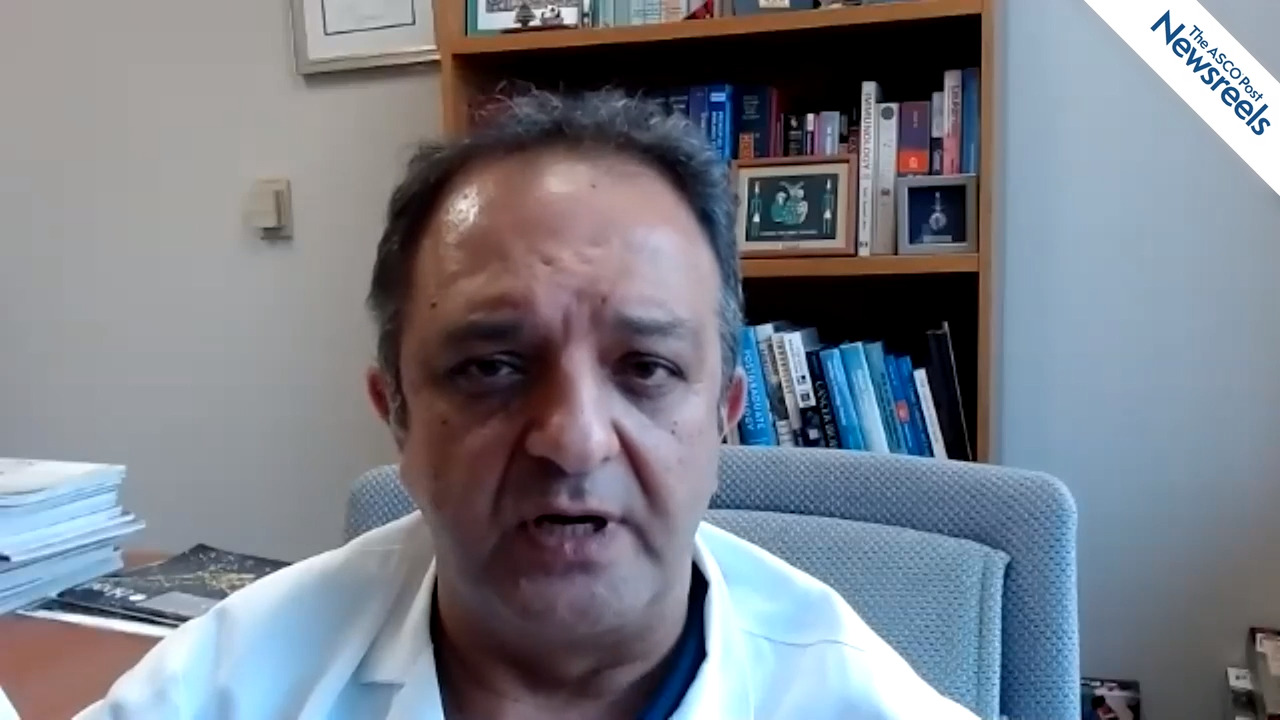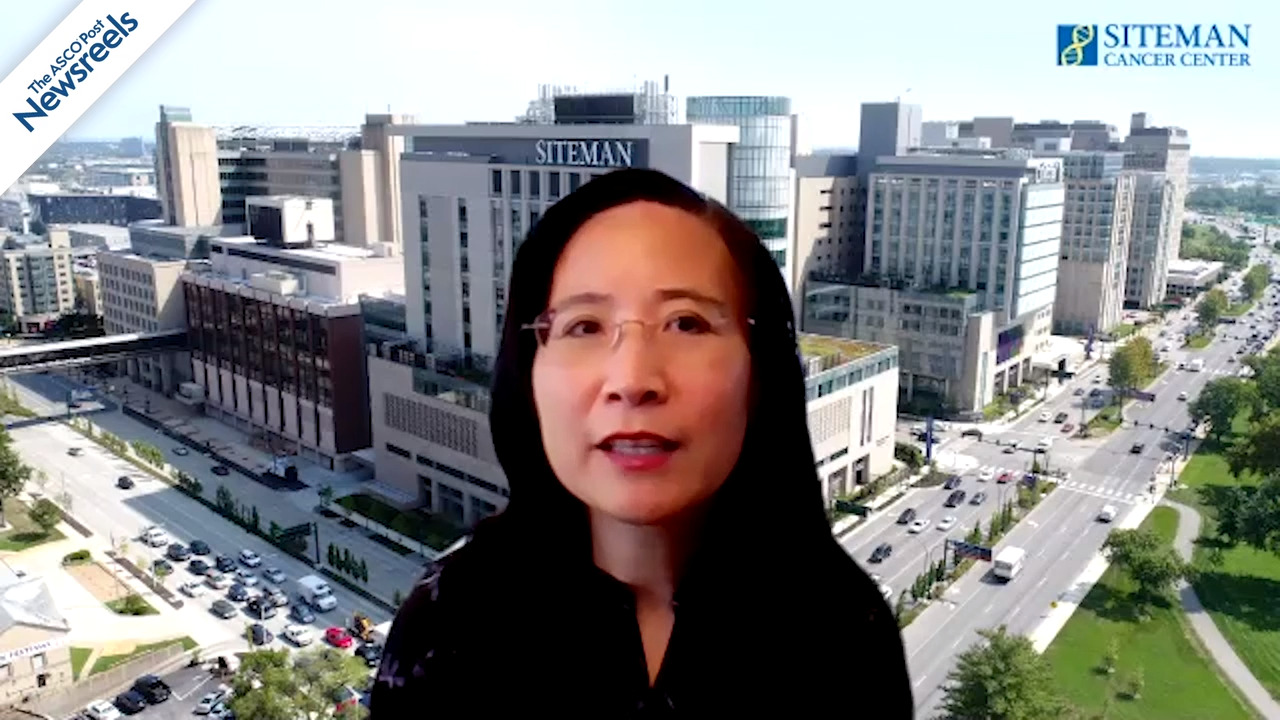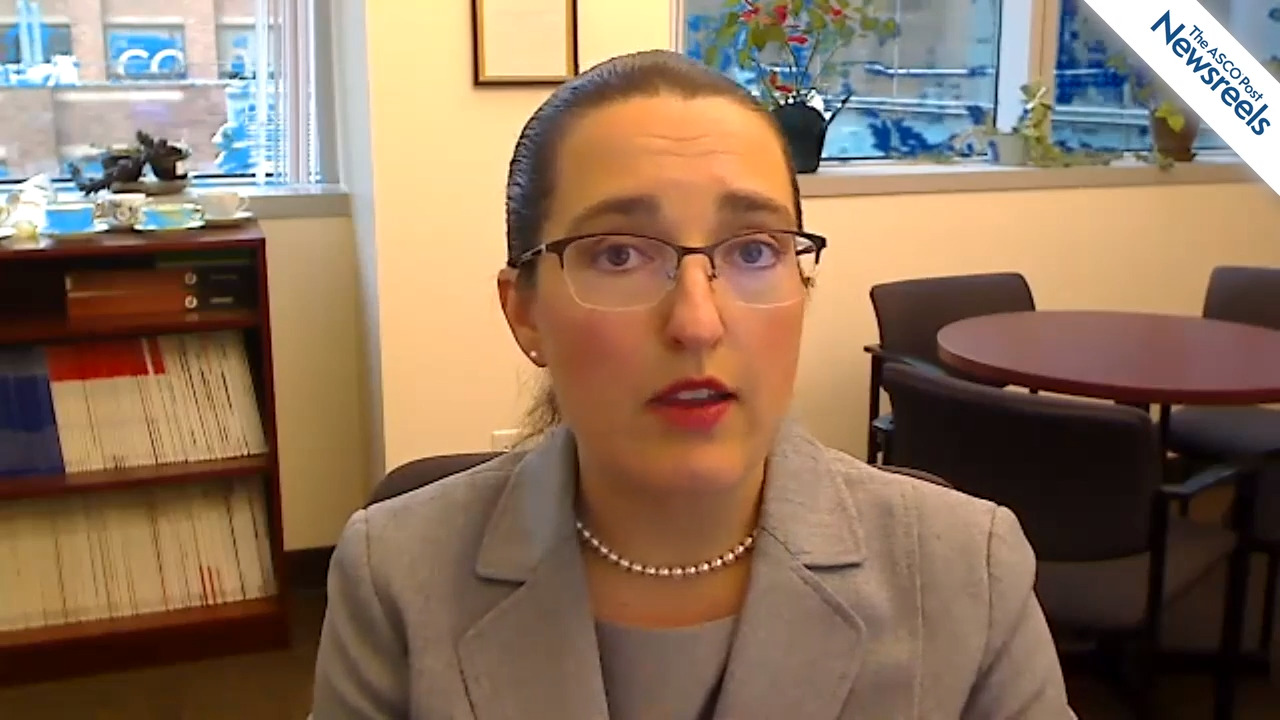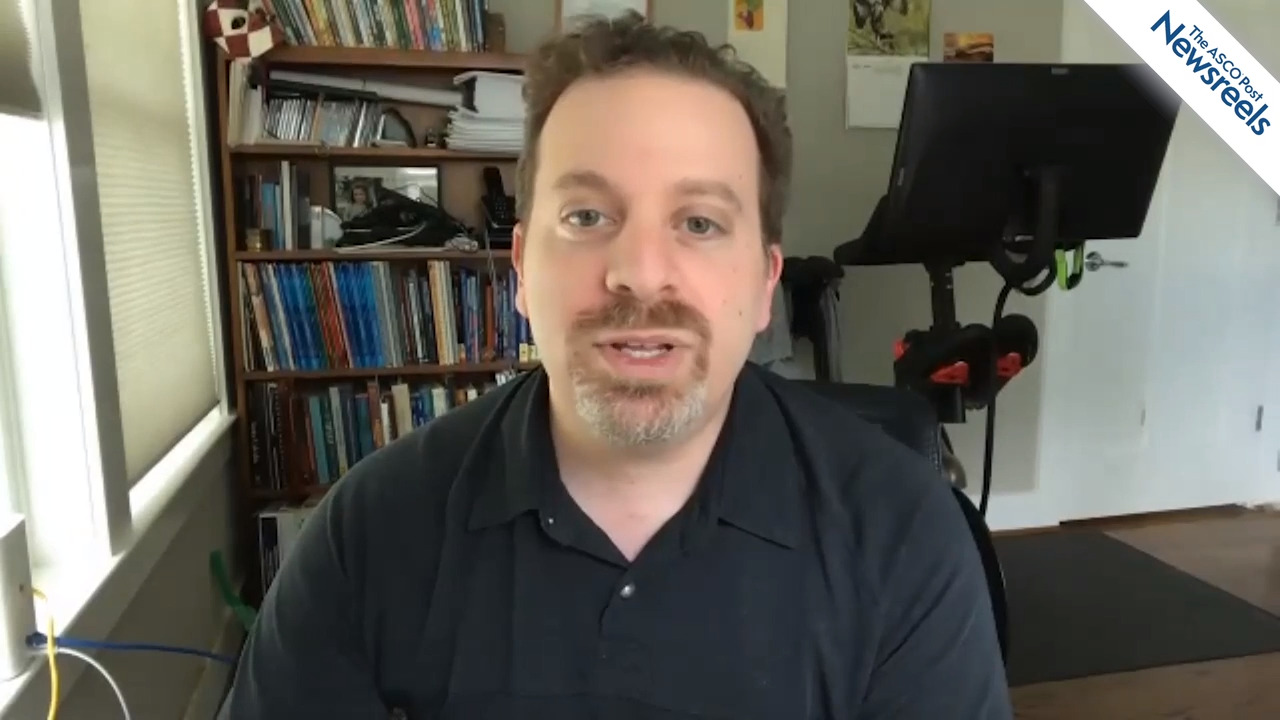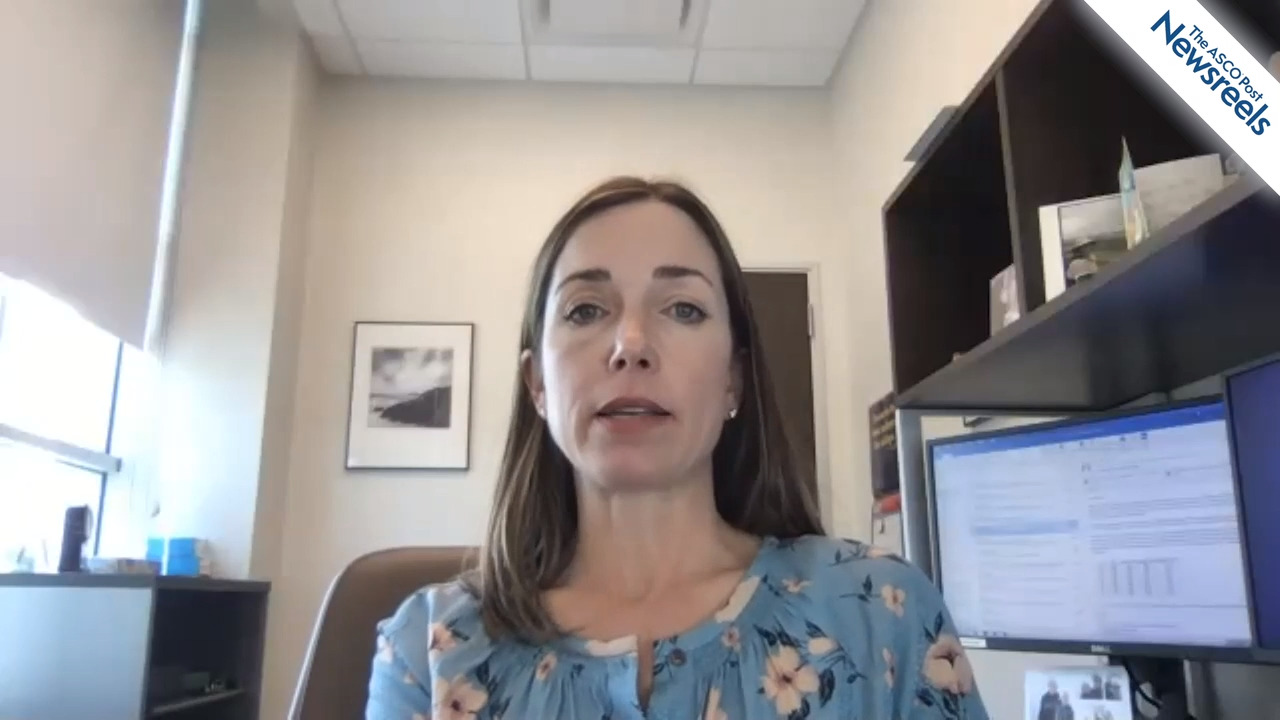Paul G. Richardson, MD, on Multiple Myeloma: First-in-Human Study of the Novel Agent CC-92480
ASCO20 Virtual Scientific Program
Paul G. Richardson, MD, of Dana-Farber Cancer Institute, discusses early results on a cereblon E3 ligase modulator agent combined with dexamethasone in patients with relapsed or refractory multiple myeloma, with an overall response rate of 48%. The study is ongoing to further optimize dose and schedule (Abstract 8500).
The ASCO Post Staff
Farhad Ravandi-Kashani, MD, of The University of Texas MD Anderson Cancer Center, discusses updates from a phase I dose-escalation study of AMG 330, a bispecific T-cell engager molecule. It showed early evidence of an acceptable safety profile, drug tolerability, and antileukemic activity, supporting further dose escalation in patients with acute myeloid leukemia (Abstract 7508).
The ASCO Post Staff
Cynthia X. Ma, MD, PhD, of Washington University, discusses results from the ALTERNATE trial, which showed neither fulvestrant nor fulvestrant plus anastrozole significantly improved endocrine-sensitive disease rate compared with anastrozole alone in postmenopausal patients with locally advanced estrogen receptor–positive, HER2-negative breast cancer (Abstract 504).
The ASCO Post Staff
Rachel E. Sanborn, MD, of the Providence Cancer Institute, discusses three key abstracts on EGFR-mutated non–small cell lung cancer: a final overall survival analysis of bevacizumab plus erlotinib; concurrent osimertinib plus gefitinib for first-line treatment; and first-line treatment with a tyrosine kinase inhibitor with or without aggressive upfront local radiation therapy (Abstracts 9506, 9507, 9508).
The ASCO Post Staff
Jeremy L. Warner, MD, of Vanderbilt-Ingram Cancer Center, discusses data from the COVID-19 and Cancer Consortium cohort study, which included patients with active or prior hematologic or invasive solid malignancies, reported across academic and community sites (Abstract LBA110).
The ASCO Post Staff
Sara A. Hurvitz, MD, of UCLA’s David Geffen School of Medicine, summarizes four breast cancer studies: KATHERINE, on adjuvant trastuzumab vs trastuzumab in patients with residual invasive disease after neoadjuvant therapy for HER2-positive breast cancer; KAITLIN, on trastuzumab emtansine and pertuzumab vs trastuzumab, pertuzumab, and taxane after anthracyclines as adjuvant therapy for high-risk HER2-positive early breast cancer; TRAIN-2, on neoadjuvant chemotherapy with or without anthracyclines for HER2-positive disease; and PHERGain, on chemotherapy de-escalation using an FDG-PET/CT and pathologic response–adapted strategy in HER2-positive early breast cancer (Abstracts 500, 501, 502, and 503).
